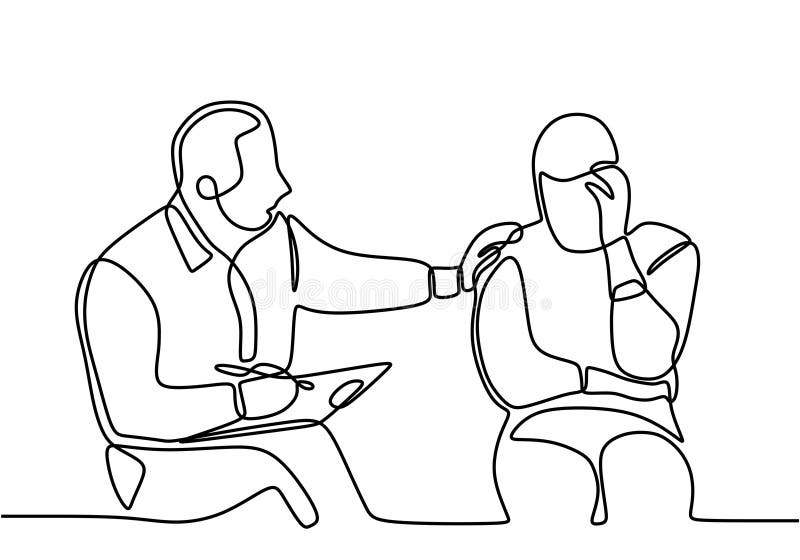Locating the Best Psychologist in Delhi: An Overview to Your Psychological Health Trip
Locating the Best Psychologist in Delhi: An Overview to Your Psychological Health Trip
Blog Article
The Function of Psych Therapy in Managing Stress And Anxiety and Anxiety
Psychiatric therapy has actually become a keystone in the management of stress and anxiety and clinical depression, offering customized treatments that range from Cognitive-Behavioral Treatment (CBT) to mindfulness-based techniques. These methods not only help individuals in identifying and restructuring unfavorable thought patterns however likewise foster present-moment awareness, reducing the propensity to ruminate. As we check out the numerous measurements of psychiatric therapy, it comes to be obvious that these techniques do greater than simply relieve signs and symptoms; they dramatically enhance psychological regulation and social skills - Best Psychologist in Delhi. What stays to be checked out is just how these restorative techniques can be effectively tailored to fulfill specific needs, thereby maximizing their influence.
Comprehending Anxiousness and Depression
Understanding anxiety and anxiety needs a thorough take a look at these common mental health conditions, which commonly exist side-by-side and dramatically impact an individual's day-to-day life. Anxiety is defined by persistent, extreme concern and fear regarding daily circumstances. Symptoms include restlessness, quick heart rate, and problem focusing. Alternatively, anxiety shows up as a pervasive feeling of hopelessness, unhappiness, or vacuum, commonly come with by a loss of interest in formerly delighted in tasks, adjustments in hunger, and rest disturbances.
The conjunction of stress and anxiety and depression can exacerbate signs and complicate medical diagnosis and therapy. People enduring from both problems might experience a lot more severe symptoms, higher disability in job-related and social performance, and a much longer period of ailment. This comorbidity requires a nuanced understanding and approach to therapy.
Neurobiological factors such as neurotransmitter inequalities, genetic proneness, and environmental stress factors add to the advancement and upkeep of these conditions. Furthermore, cognitive patterns like negative attitude and maladaptive behaviors can continue these conditions. Understanding the complex interplay of these aspects is vital for effective intervention. Comprehensive assessment by psychological health and wellness professionals is important to determine the visibility and degree of these conditions, paving the means for tailored therapeutic strategies.
Sorts Of Psychotherapy
Psychotherapy, additionally referred to as talk treatment, includes a range of therapy techniques designed to alleviate symptoms of anxiousness and anxiety by resolving the underlying emotional and mental problems. Various kinds of psychotherapy are tailored to meet the unique requirements of people, supplying a series of methods to psychological health and wellness care.
One widely utilized form is psychodynamic therapy, which concentrates on understanding and solving unconscious problems originating from very early life experiences. By exploring these deep-seated concerns, individuals get insight right into their current behavior and emotion.
Social Treatment (IPT) is one more efficient modality that focuses on enhancing interpersonal partnerships and social operating to reduce depressive signs and symptoms. It typically attends to concerns such as sorrow, role changes, and social conflicts.
Humanistic therapies, such as Client-Centered Treatment, highlight personal growth and self-actualization. Best Psychologist in Delhi. These strategies create an encouraging atmosphere where individuals can explore their feelings and create a stronger sense of self
Last But Not Least, Dialectical Behavior Modification (DBT) incorporates cognitive-behavioral methods with mindfulness practices. Initially created for borderline personality condition, DBT has been adjusted to deal with anxiety and anxiety by mentor skills in distress resistance, psychological law, and social effectiveness.
These diverse psychotherapeutic methods use several pathways to psychological wellness and health, accommodating restorative requirements and individual choices.
Cognitive-Behavioral Therapy (CBT)
Amongst the different psychotherapeutic techniques, Cognitive-Behavioral Treatment (CBT) stands apart for its structured, ambitious approach in dealing with anxiety and depression. Created by Aaron T. Beck in the 1960s, CBT is based on the idea that maladaptive thinking patterns add significantly to psychological distress and behavioral problems. By identifying and reorganizing these negative idea patterns, CBT intends to ease signs and symptoms and foster healthier cognitive processes.
CBT is commonly temporary, spanning 12 to 20 sessions, and includes a joint initiative between therapist and individual. The therapy includes a variety of techniques, including cognitive restructuring, exposure treatment, and behavioral activation. Cognitive restructuring concentrates on testing and customizing distorted cognitions, while direct exposure therapy slowly accustoms individuals to anxiety-provoking stimulations, lowering avoidance behaviors. Behavioral activation seeks to increase involvement in fulfilling activities to combat depressive states.
Empirical proof emphasizes the efficiency of CBT, with various research studies demonstrating its performance in decreasing signs of anxiousness and anxiety. This healing approach has been adapted for various populations and setups, proving functional and versatile. Its structured nature, empirical assistance, and focus on ability purchase make CBT a cornerstone in the psychotherapeutic therapy of anxiety and clinical depression.
Mindfulness-Based Methods
Mindfulness-Based Techniques have garnered significant interest over the last few years as effective interventions for anxiety and depression. Rooted in ancient reflection look at here practices, these techniques aim to grow a heightened understanding of the existing moment, which can aid individuals disengage from the ruminative thought patterns often connected with stress and anxiety and depressive problems.

Likewise, Mindfulness-Based Cognitive Treatment (MBCT) incorporates concepts from Cognitive-Behavioral Therapy (CBT) with mindfulness strategies. MBCT is particularly reliable in preventing relapse in people with reoccurring depression. By identifying very early indication a fantastic read of depressive episodes, individuals learnt MBCT can use mindfulness methods to reduce the start of full-on episodes.
Advantages of Psychotherapy
Numerous research studies have actually demonstrated the profound benefits of psychotherapy for individuals coming to grips with anxiety and depression. Among the crucial advantages is the renovation of psychological regulation. Psychotherapy gears up individuals with coping methods to manage distressing feelings, thereby lowering signs of stress and anxiety and anxiety. Cognitive-behavioral therapy (CBT), for example, helps people identify and challenge negative thought patterns, fostering a much more positive and balanced expectation.
Additionally, psychotherapy gives a structured atmosphere for self-exploration and understanding. By reviewing their experiences and feelings with a trained therapist, people can discover underlying problems adding to their psychological wellness struggles. This self-awareness is a crucial step towards long-term recovery and resilience.
Another significant advantage is the improvement of interpersonal skills. Anxiety and clinical depression usually strain connections, leading to isolation. Via therapeutic treatments, individuals find out efficient interaction and conflict-resolution abilities, which can enhance their interactions and foster helpful relationships.
Furthermore, psychiatric therapy provides a customized technique to treatment. Therapists can adapt strategies to meet the distinct requirements of each person, guaranteeing an individualized care plan. This Discover More Here personalization improves the efficacy of therapy, promoting sustained psychological health enhancements. Inevitably, the advantages of psychiatric therapy extend past symptom relief, contributing to general health and high quality of life.

Final Thought
Psychotherapy substantially adds to the management of anxiousness and clinical depression by offering effective coping techniques and a safe environment for self-exploration. Techniques such as Cognitive-Behavioral Treatment (CBT) and mindfulness-based techniques are instrumental in recognizing and restructuring negative idea patterns, while advertising present-moment understanding. These tailored treatments not only reduce signs and symptoms but likewise enhance emotional policy and social abilities, thus enhancing general wellness and lifestyle for individuals encountering these psychological health and wellness difficulties.
Psychiatric therapy has actually emerged as a keystone in the management of stress and anxiety and clinical depression, providing tailored interventions that vary from Cognitive-Behavioral Therapy (CBT) to mindfulness-based techniques.Recognizing stress and anxiety and clinical depression requires a thorough appearance at these common mental health conditions, which usually coexist and significantly effect an individual's everyday life.Amongst the various psychotherapeutic methods, Cognitive-Behavioral Therapy (CBT) stands out for its structured, ambitious strategy in dealing with anxiousness and clinical depression.Many research studies have actually shown the profound benefits of psychotherapy for individuals grappling with anxiousness and clinical depression. Psychiatric therapy gears up clients with dealing methods to manage distressing emotions, thus lowering signs and symptoms of anxiousness and clinical depression.
Report this page